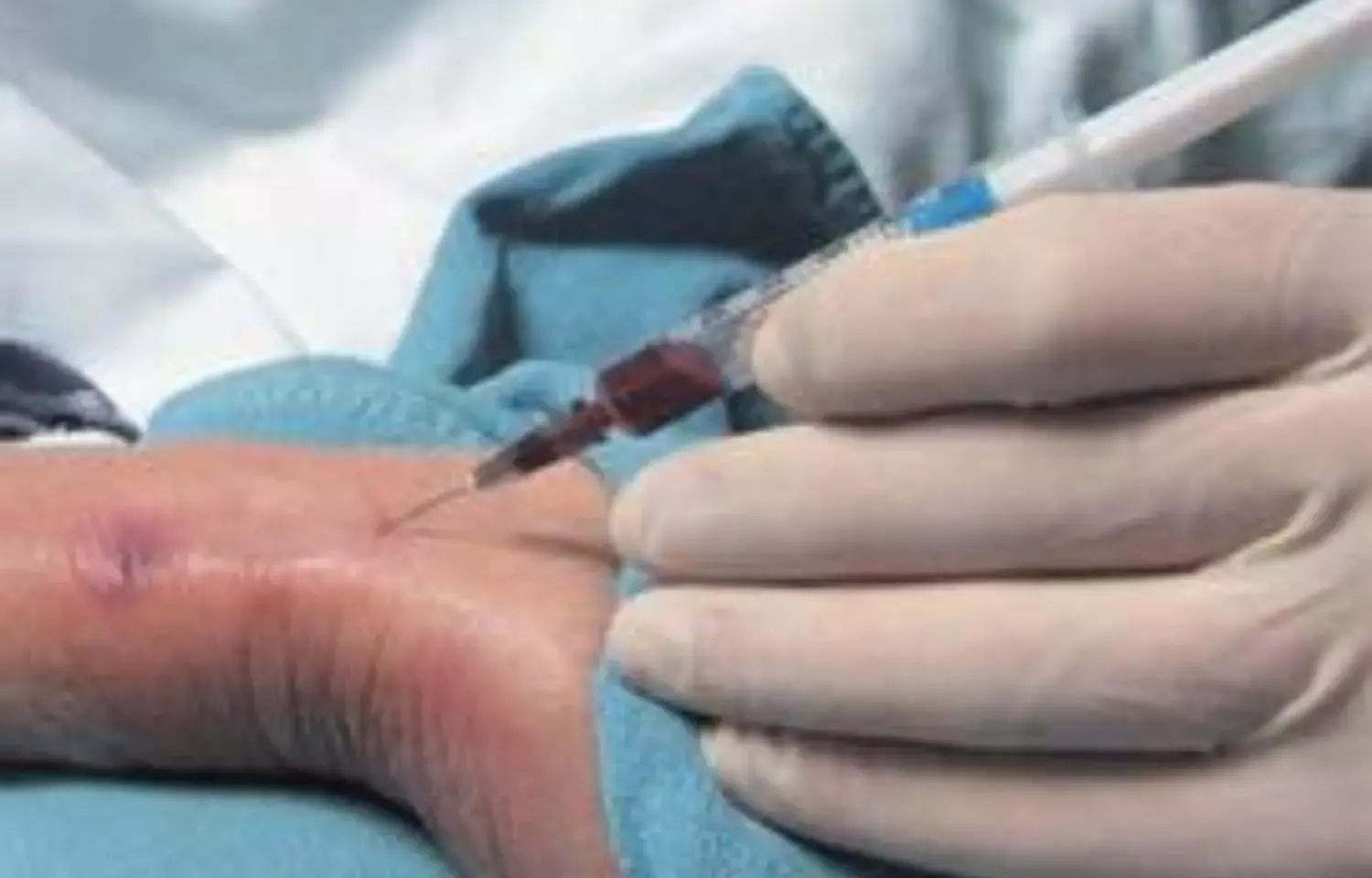- Home
- Medical news & Guidelines
- Anesthesiology
- Cardiology and CTVS
- Critical Care
- Dentistry
- Dermatology
- Diabetes and Endocrinology
- ENT
- Gastroenterology
- Medicine
- Nephrology
- Neurology
- Obstretics-Gynaecology
- Oncology
- Ophthalmology
- Orthopaedics
- Pediatrics-Neonatology
- Psychiatry
- Pulmonology
- Radiology
- Surgery
- Urology
- Laboratory Medicine
- Diet
- Nursing
- Paramedical
- Physiotherapy
- Health news
- Fact Check
- Bone Health Fact Check
- Brain Health Fact Check
- Cancer Related Fact Check
- Child Care Fact Check
- Dental and oral health fact check
- Diabetes and metabolic health fact check
- Diet and Nutrition Fact Check
- Eye and ENT Care Fact Check
- Fitness fact check
- Gut health fact check
- Heart health fact check
- Kidney health fact check
- Medical education fact check
- Men's health fact check
- Respiratory fact check
- Skin and hair care fact check
- Vaccine and Immunization fact check
- Women's health fact check
- AYUSH
- State News
- Andaman and Nicobar Islands
- Andhra Pradesh
- Arunachal Pradesh
- Assam
- Bihar
- Chandigarh
- Chattisgarh
- Dadra and Nagar Haveli
- Daman and Diu
- Delhi
- Goa
- Gujarat
- Haryana
- Himachal Pradesh
- Jammu & Kashmir
- Jharkhand
- Karnataka
- Kerala
- Ladakh
- Lakshadweep
- Madhya Pradesh
- Maharashtra
- Manipur
- Meghalaya
- Mizoram
- Nagaland
- Odisha
- Puducherry
- Punjab
- Rajasthan
- Sikkim
- Tamil Nadu
- Telangana
- Tripura
- Uttar Pradesh
- Uttrakhand
- West Bengal
- Medical Education
- Industry
Arterial punctures safe for arterial blood gas analyses, study reveals

Denmark: Arterial punctures (APs) are safe procedures for arterial blood gas (ABG) analyses, reveals a recent study in the journal ERJ Open Research. The findings showed that the major complication rate within 7 days was 0.14%. Further, it was shown that patients on antithrombotic medication were at increased risk of developing major complications.
Arterial punctures are much-used medical procedures for arterial blood gas analyses. To date, no large studies have been performed on the major complication rate of APs. Considering this, Sacha C. Rowling, Odense University Hospital, University of Southern Denmark, Odense, fDenmark, and colleagues aimed to describe the risk of major complications within 7 days after puncture and investigate whether using antithrombotic medication affected this.
The study included all APs performed for ABG analysis at three Danish hospitals from January 1, 1993, to February 25, 2013. APs ordered by the anesthesiology department, intensive care unit (ICU), or in patients <18 years old were excluded. Data on the patient level were extracted from the Danish Civil Registration System, Danish National Patient Registry, and Odense Pharmaco-Epidemiologic Database (OPED). To begin with, two clinicians compiled a list with all procedures and diagnoses that could possibly be an APs consequence. Further, the selected procedures and diagnoses were categorized independently three surgeons and used to indicate the complication rate.
The study revealed the following findings:
- The researchers analyzed 473 327 APs and found 669 APs led to major complications: embolisms or thrombosis (49.0%), aneurysms (15.4%), nerve damage (1.5%), arteriovenous fistulas (0.6%), or of another kind (33.5%).
- The identified major complication rates in patients on antithrombotic medication were increased (OR 1.31).
"We analyzed 473 327 APs in this multicentre historical cohort study and found them to be safe in this multicentre historical cohort study; they have a major complication rate with 0.14% of the APs leading to major complications (i.e. embolisms or thrombosis, nerve damage, aneurysms, arteriovenous fistulas or of another kind)," wrote the authors. "Patients on antithrombotics were at an increased risk of developing major complications (0.17%)."
"The only variables associated with an increased risk of developing a major complication after an AP are male sex and using antithrombotic medication," they concluded.
Reference:
Arterial blood gas analysis: as safe as we think? A multicentre historical cohort study Sacha C. Rowling, Marianne Fløjstrup, Daniel Pilsgaard Henriksen, Bjarke Viberg, Christian Hallenberg, Jes Sanddal Lindholt, Andreas Alberg-Fløjborg, Prabath W.B. Nanayakkara, Mikkel Brabrand ERJ Open Research Jan 2022, 8 (1) 00535-2021; DOI: 10.1183/23120541.00535-2021
KEYWORDS: arterial blood gas, arterial punctures, Sacha C Rowling, major complications, antithrombotic, embolism, thrombosis, aneurysms, nerve damage, arteriovenous fistulas, ERJ Open Research
Dr Kamal Kant Kohli-MBBS, DTCD- a chest specialist with more than 30 years of practice and a flair for writing clinical articles, Dr Kamal Kant Kohli joined Medical Dialogues as a Chief Editor of Medical News. Besides writing articles, as an editor, he proofreads and verifies all the medical content published on Medical Dialogues including those coming from journals, studies,medical conferences,guidelines etc. Email: drkohli@medicaldialogues.in. Contact no. 011-43720751


